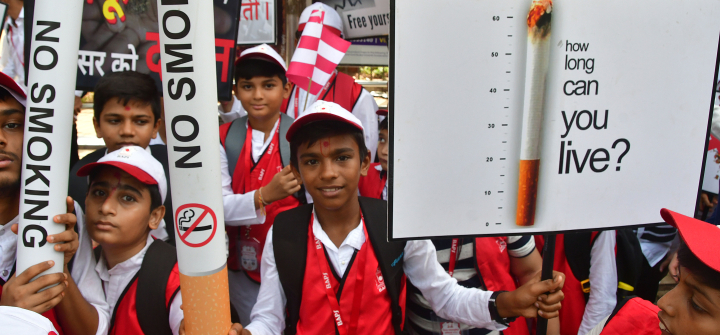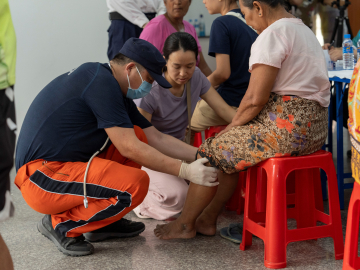NCDs Are Coming for Youth. Are They Up for the Fight?
NCDs: It’s an acronym most youth won’t see in their TikTok feeds. But NCDs, or noncommunicable diseases—chronic conditions like heart disease, diabetes, and cancer—accounted for ~1.7 million deaths in people under 30 years old in 2016.
Moreover, the three-quarters of global deaths attributed to NCDs are primarily driven by behaviors that often start during childhood and adolescence—fueled by social, economic, environmental, commercial, and political determinants that create unhealthy environments.
The good news is that young people are ready to transform the fight against these leading yet preventable causes of death.
A recent Gallup survey, which sought to better understand public perceptions around NCDs, found a gap between knowledge of these diseases and their relative harmfulness. While many perceive cancer to be “very harmful,” they underestimate the threat of other NCDs such as diabetes and heart disease. There is also a tendency to talk about NCDs caused by certain risk factors or affecting key regions without communicating their impact on young people.
In fact, pervasive behaviors like using tobacco and alcohol and consuming unhealthy foods—influenced by industry marketing and adding to unhealthy environments—disproportionately put youth at risk. While global smoking rates have fallen from 22.7% to 17.5%, a new generation is risking nicotine addiction and potentially serious health problems through e-cigarettes due to the industry’s efforts to appeal to youth.
Young leaders, who have seen their peers dying needlessly yet haven’t felt adequately seen or heard themselves, are demanding action now. It’s time to maximize efforts to ensure meaningful youth engagement in the fight against NCDs and their risk factors—a need that emerged from a session on NCDs at the WHO’s recently-convened 76th World Health Assembly in May, hosting some of the world’s foremost health experts and advocates.
Working alongside the WHO and other youth-led organizations for decades to control and prevent NCDs at the international, regional, national, and local levels, our groups – Bloomberg Philanthropies and the International Federation of Medical Students’ Associations – have seen many examples of successful NCD and injury prevention programs and efforts to include youth voices in problem-solving for public health issues, including tobacco control.
We’ve also seen success with this approach to other challenges, such as the meaningful engagement of youth leaders at the UN Climate Change Conference of Parties. A multi-stakeholder approach, where young people are among those who bring their experiences and perspectives to ensure strategies are aligned to populations’ needs, is necessary to stem the incidence of NCDs and injuries.
We believe that supporting youth advocates everywhere is crucial. Youth can contribute meaningfully toward addressing NCDs and injuries on the world stage and in their backyard. And we can leverage their voices to help increase the general public’s understanding of NCDs and their risk factors. Training, community-building, and raising awareness will be key to this approach.
When NCDs and their risk factors are addressed, young people are healthier and more successful in school. Young adults can participate in the workforce, provide for their children, and grow into older adults who contribute long-term to their families and to society.
In the same way we’ve given youth the opportunity to stand up and fight against the looming threat of climate change and other public health issues, we must educate and entrust them to address NCDs, injuries and other causes of their untimely deaths today—saving millions of lives in the process.
Kelly Henning, MD, an epidemiologist and medical doctor, leads Bloomberg Philanthropies’ Public Health Program. Mohamed Eissa, MD, a medical doctor and global health advocate, is the International Federation of Medical Students Associations' liaison officer for Public Health Issues 21/23.
Join the 50,000+ subscribers in 170+ countries who rely on Global Health NOW summaries and exclusive articles for the latest public health news. Sign up for our free weekday newsletter, and please share the link with friends and colleagues: https://www.globalhealthnow.org/subscribe
Children raising awareness of the harms caused by tobacco products on World No Tobacco Day. Mumbai, India, May 31, 2022. Bhushan Koyande/Hindustan Times via Getty




